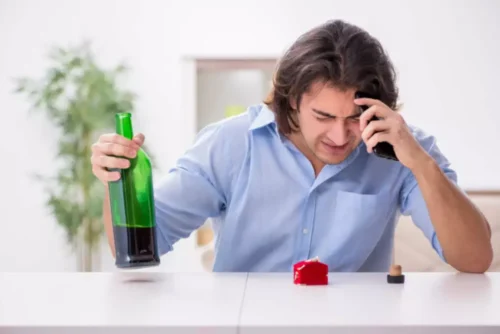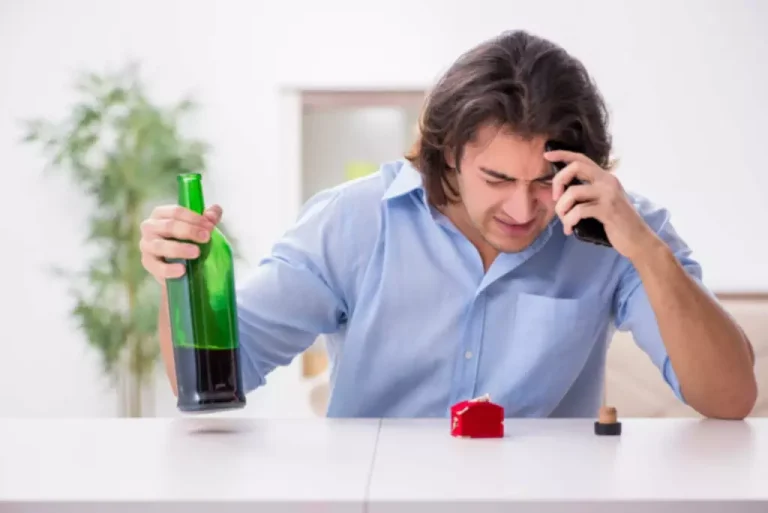
The main reasons why you feel shaky after drinking are that alcohol messes with your brain’s neurotransmitters, dehydrates you, and can lower your blood sugar. One of the primary causes of hangover shakes is alcohol-induced dehydration. Alcohol is a diuretic, meaning it increases urine production and leads to fluid loss.
- In some cases, shivering when consuming alcohol may be a symptom of an underlying medical condition, such as thyroid issues or anemia, that can be exacerbated by alcohol consumption.
- Some individuals may experience shivering when drinking alcohol due to an underlying medical condition such as thyroid issues or anemia.
- Alcohol has a significant impact on our central nervous system (CNS), which controls our thoughts, movements, and senses.
- Most of the time, an individual with a drinking problem who shakes is exhibiting signs of alcohol withdrawal, but there are other reasons why an alcoholic might shake.
How Do I Get My Loved One Help For Drug Addiction?
Scientifically speaking, this is when you’ve drunk an amount of alcohol that puts your blood alcohol level at a poisonous level. If you have any questions or concerns, share your results with your doctor. So, while it might offer temporary relief, the “hair of the dog” is a risky strategy that can lead to more harm than good. This is why you might find yourself ravenously hungry after a night of drinking. While hepatic encephalopathy can also lead to coma and death, the condition usually resolves with treatment. You’d think alcohol and shaking had to do with dancing, but that’s not always the case.

The Impact of Family Support on Recovery

If you or someone you know experiences alcohol shakes or other withdrawal symptoms, it may indicate a physical dependency on alcohol. Seeking medical intervention and assistance is crucial for a safe withdrawal process. Medical professionals can provide guidance, support, and appropriate treatment options to manage alcohol withdrawal and reduce potential risks 2. Alcohol shakes, also known as alcohol tremors, can be a sign of alcohol withdrawal. These shakes typically occur as quickly as 8 hours after the last drink, as the brain is flooded with more activity when alcohol leaves the body of a heavy drinker 2. Heavy drinking can lead to the brain becoming accustomed to a reduced level of stimulation.
Q5. Are there any medical treatments for alcohol-induced shivering?
Treatment options can include both pharmacological and non-pharmacological approaches, provided in inpatient and outpatient settings. Identifying and comprehending the different alcohol withdrawal symptoms is key for effective treatment and support. Comprehending the link between alcohol withdrawal and body temperature regulation can be beneficial for individuals experiencing withdrawal symptoms.
- Alcohol shakes are a symptom of the disorder when they occur with other signs of AUD.
- Hangover shakes can last anywhere from a couple of hours to a few days.
- Alcohol-related damage to the cerebellum can result in what’s known as an intention tremor.
- In the upcoming sections, we’ll examine the causes behind the chills during alcohol withdrawal, their frequency, severity, and the wider range of withdrawal symptoms.
Unlike regular alcohol tremors, DT is a medical emergency and can be life-threatening if it’s not treated. DT’s are less common than regular alcohol tremors, occurring in about 5 percent of patients going through withdrawal. DT’S will typically appear around 2-4 days after a person’s last drink.


Alcohol consumption can exacerbate existing health issues and result in symptoms like shivering. In some cases, shivering when drinking alcohol could be a sign of hypoglycemia, or low blood sugar levels. Alcohol can impact your body’s glucose metabolism, why do i shiver when i drink alcohol potentially leading to decreased blood sugar levels, which can trigger shivering. Another effective strategy for preventing hangover shakes is to eat before and during alcohol consumption. Consuming a balanced meal before drinking can help slow down alcohol absorption, reducing its impact on your body. Opt for a meal that includes carbohydrates, healthy fats, and protein to provide sustained energy and help minimize alcohol’s effects.

Shaking After Drinking Is Serious
Some people may have a sensitivity or allergy to certain ingredients in alcoholic beverages, causing their body to react with symptoms such as shivering. To combat alcohol-induced dehydration and reduce the likelihood of experiencing hangover shakes, it is crucial to maintain proper hydration. Drinking water or non-alcoholic beverages between alcoholic drinks can help replenish lost fluids.
